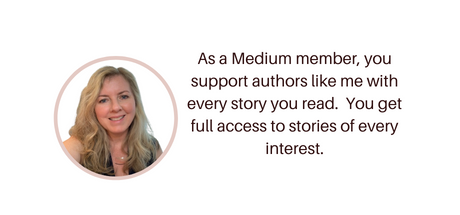Understanding the Impact of Self-Betrayal on Mental Health
Written on
Recognizing Self-Betrayal
Begin to notice how your emotions fluctuate when making choices.

Photo courtesy of Pexels for Canva
What Does Self-Betrayal Mean?
Self-betrayal occurs when you overlook your personal needs, whether intentionally or unintentionally, in favor of satisfying others. This goes beyond merely trying to please people; it also encompasses self-sabotage, neglecting fundamental needs, and evading accountability in various situations. You deceive yourself and refrain from acting genuinely due to the fear of being abandoned.
The Origins of Self-Betrayal
Self-betrayal often stems from traumatic experiences, particularly those rooted in a dysfunctional family dynamic or an environment lacking emotional support. For instance, I had a sister who passed away when I was just two years old after a year-long struggle with leukemia. Although I don’t recall any of this, I can only imagine that my parents were deeply focused on her care. Additionally, my mother was pregnant with my younger brother. While I know she would have done her best for me, her energy must have been severely limited.
Consider a client of mine who grew up amidst her parents' contentious divorce. Her mother worked tirelessly to provide for their needs, while her father, who struggled with mental health issues, was often neglectful. My client found herself responsible for both her needs and those of her younger sister, with no one available to help her navigate her own profound feelings of loss and abandonment.
The Anxiety Linked to Self-Betrayal
Self-betrayal can lead to anxiety because it disconnects you from your true self. Living inauthentically results in persistent feelings of unease, preventing you from feeling genuinely at ease.
Examples of Self-Betrayal:
- You aspire to be a musician, but your parents pressure you to pursue a more conventional career like law or medicine, convincing you it’s the safer choice.
- Your friends invite you on a trip that involves excessive partying, which you’re not comfortable with, but you join them, believing it might benefit you.
- Your boss requests you to engage in unethical practices to secure a client, and despite your reservations, you comply to retain your job.
- Your partner wants to relocate for work, and even though you’re reluctant to leave your friends and job, you agree to the move.
- You remain in a relationship that often leaves you feeling discontent, convincing yourself it will improve with time or personal achievements.
Implementing Positive Habit Changes
If you frequently experience anxiety, consider integrating some of these beneficial habits into your routine:
- Prioritize self-care: Regularly devote time to nurturing your well-being, which can boost your confidence.
- Express your beliefs: Start with small decisions, such as food preferences or home decor, and gradually assert your views on more significant matters.
- Own your circumstances: Acknowledge that personal change begins with you. Avoid blaming others for your situation, as you have the power to influence your own life.
- Tune into your intuition: Pay attention to your body's signals. If you experience discomfort, it may indicate areas where you’re not honoring your authentic self. Physical symptoms can arise as a distraction from emotional pain, exemplified by headaches or nausea in stressful situations.
- Assess your relationships: Reflect on whether you need to establish boundaries or distance yourself from toxic individuals. As you enhance your self-care practices, you’ll likely feel increasingly at odds with those who do not treat you well.
Be mindful of moments of anxiety; they are your true self signaling that something is amiss and calling for a change.
For further insights on how to overcome self-betrayal, check out my mini program, "You Can Only Change Yourself."

Chapter 2: The Effects of Self-Betrayal
In this video, "The Treachery of Self-Betrayal," we delve into how self-betrayal affects our mental well-being and the importance of recognizing this behavior.
The second video, "Self-Betrayal: What it is, why we do it, and how to change it while creating empowered growth," explores strategies to overcome self-betrayal and foster personal growth.